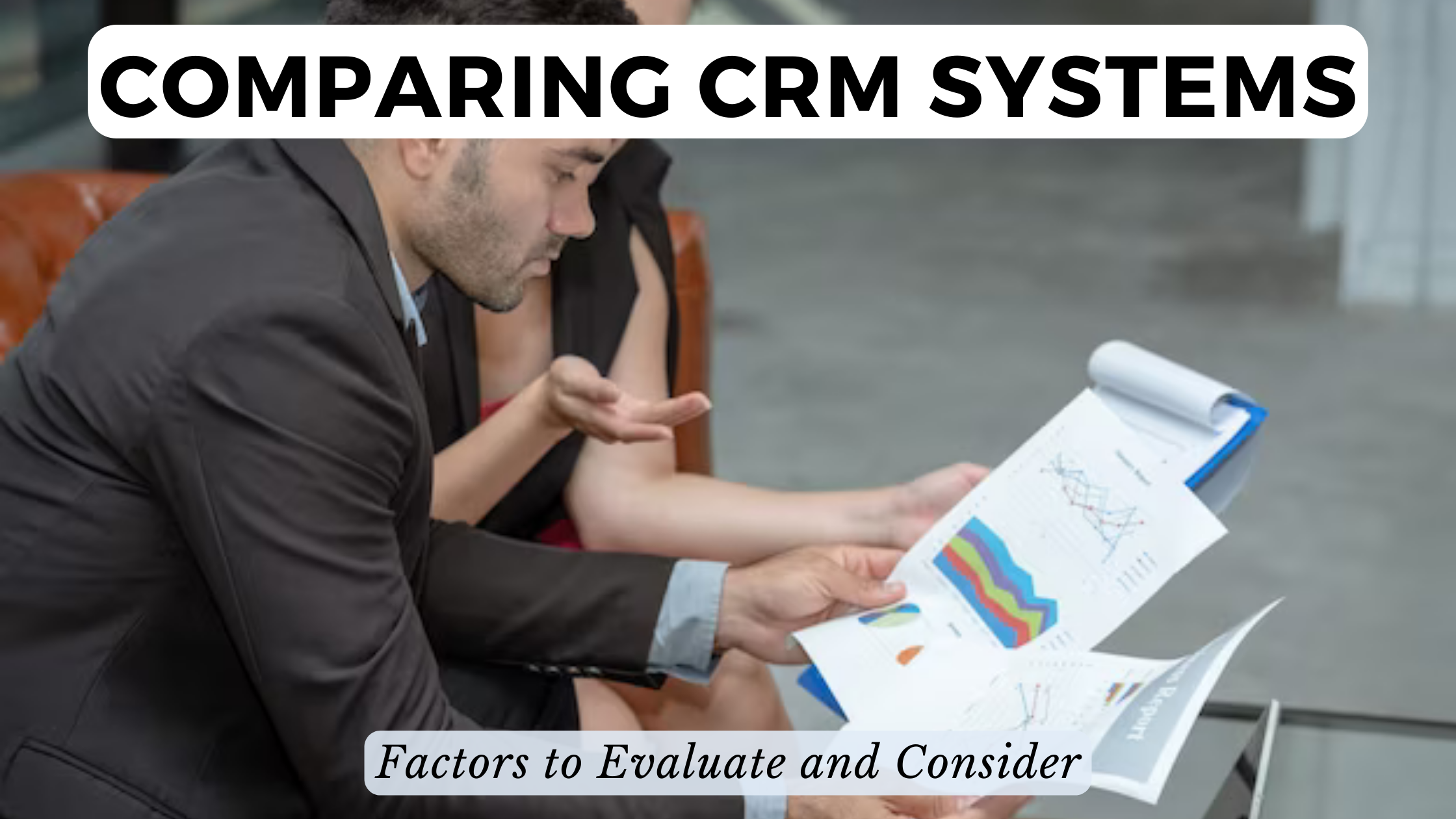Comparing CRM Systems: Factors to Evaluate and Consider
- Proposal Software Customer Relationship Management


Comparing CRM Systems: Factors to Evaluate and Consider
With countless CRM platforms now available, selecting the right solution for your business can feel overwhelming. How do you determine which system best fits your needs?
By comparing options across a defined criteria aligned to your specific requirements, you can make an informed CRM buying decision.
Here are the key factors to evaluate when comparing CRM systems:
Core Functionality
At its heart, CRM software should deliver solid contact management, pipeline visibility, lead tracking, and sales reporting. Compare how different platforms handle these core sales automation capabilities.
Look for intuitive contact/account records, customizable pipeline stages, activity logging, and flexible reporting. Sales-centric CRMs like Pipedrive and HubSpot CRM excel here.
Lead and Contact Management
Managing leads and contacts is the foundation of CRM. Review how each platform handles recording leads, assigning owners, scoring, segmentation, email integration, and converting to contacts.
Ideally, the CRM makes centralizing customer data simple while providing segmentation tools to group leads based on attributes, behaviors, and more. Insightly CRM is particularly strong here.
Integration and Workflows
Evaluate how the CRM platform automates workflows and integrates with complementary martech tools through APIs, connectors, and plugins.
Your sales team’s productivity is maximized when the CRM seamlessly shares data across marketing, service, and back-office applications. Platforms like Zoho CRM shine in cross-app integration.
Analytics and Reporting
Robust analytics should provide visibility into rep performance, pipeline health, forecast trends and more. Compare the reporting functionality and dashboards of each CRM tool.
Look for customizable reports that align to your sales KPIs. AI-driven systems like Salesforce CRM deliver particularly powerful predictive analytics capabilities.
Mobility and Offline Access
Evaluate each platform’s mobile app and offline access to enable productivity on-the-go. Compare capabilities for updating records, logging interactions, and accessing reporting remotely.
The CRM’s mobile experience should match the desktop version to keep field agents engaged. Microsoft Dynamics 365 provides seamless omnichannel sync powered by the Microsoft cloud.
Scalability and Flexibility
Consider how well each CRM solution can expand along with your business needs. Review customization options, storage capacity, tiered pricing, and extensibility through APIs.
Ideally, the platform easily scales from a few to thousands of users while adapting to your sales processes. Enterprise-grade systems like SAP CRM flex smoothly alongside growth.
Ease of Use and Training
A CRM’s interface impacts user adoption. Compare CRM platforms based on visual appeal, intuitiveness, and how readily users can personalize workflows.
Minimal training time also boosts adoption. Evaluate available in-app guidance, knowledge bases, and support levels to assist getting teams onboard efficiently.
Cost Structure
Pricing varies widely between CRM solutions. Compare both monthly fees and total cost of ownership across platforms. Calculate ROI based on business impact against TCO.
Many vendors offer free trial periods to experience the CRM first-hand. Be sure to also confirm any hidden fees around support, storage, or API calls.
Optimizing CRM Spending
Once you’ve selected the right CRM platform based on these criteria, the work has just begun. You must continuously optimize your CRM investment as business needs evolve.
This is where a subscription management solution like Subscribed.FYI is invaluable. By centralizing all software subscriptions in one place, Subscribed.FYI provides the visibility needed to actively manage CRM and tech spending.
You can leverage Subscribed.FYI Deals to get the best pricing on your chosen CRM. Usage metrics also enable right-sizing licenses over time based on actual adoption.
No matter which CRM system you choose, optimizing your investment through effective subscription management ensures maximizing the impact on sales performance.
Conclusion
Selecting a CRM platform based on careful comparison across key criteria results in the best fit solution for sales teams. Alignment to specific workflows, reporting needs, and scalability requirements determines CRM success.
But the work doesn’t stop after CRM implementation. Ongoing optimization of spending and licenses is crucial for maintaining value as needs change. A platform like Subscribed.FYI makes this achievable through consolidated subscription oversight.
Whether you choose Salesforce, Microsoft Dynamics, HubSpot or any other CRM, managing subscriptions strategically over time enables getting the highest possible ROI.
Relevant CRM Platforms:








